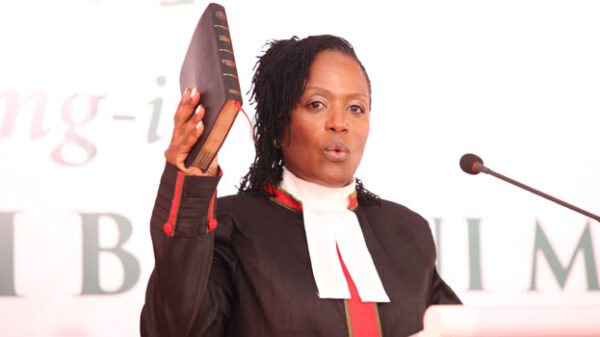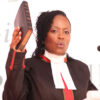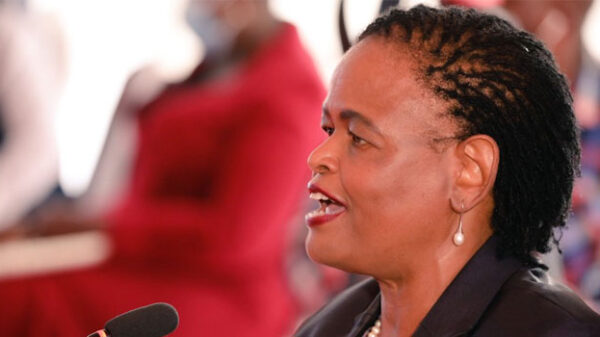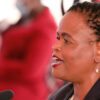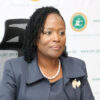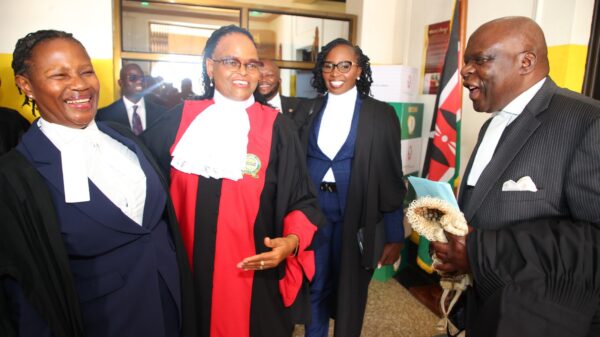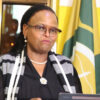The importance of digitization and the Internet for social and human development cannot be ignored. The digitization of government and private sector services, including judicial services, is increasingly considered a key ingredient for modernization of public and private sector processes and crucial for enhancing efficiency in service delivery.
Indeed, it is now widely accepted that digitization is crucial for the realization of the goal of agile government processes that are expeditious, efficient, flexible and responsive. Our Judiciaries in the region are testimony to this. In the wake of the Covid-19 pandemic, courts across the region have embraced virtual courts, e-filling and electronic case management systems resulting in improved efficiencies and cost-effectiveness of the justice system.
Across various sectors of the society and economy, we have witnessed the integration of the internet, software, social media platforms, algorithms, and digital devices into our daily lives and decision making in the public and private sectors. What this means is that, in the near future, many private and public agencies look set to transition to being fully digital or partly digital in their operations.
Even as we celebrate the advances in social and human development linked to the embrace of digital technologies and the internet, we must acknowledge the reality that digital technologies and the Internet also have a ‘dark face or dark side’ as they carry with them significant risks.
It has become increasingly apparent that in politics, social media has at times been used to divide societies and polarize political systems. This has been a function of the deployment of hate speech, incitement to violence, fake news, and disinformation through social media platforms. This concern heightens in most African countries, including Kenya, during electioneering periods.
Related to this, is the abuse of digital technologies and the Internet for abuse of children, who are a vulnerable group in the society. This often takes the form of child pornography and child trafficking.
In such a context, the governance of this brave new world becomes crucial. We should approach the ‘digital world’ as a global common or public good (i.e. essentially, a common or shared commodity, asset or resource). Under such a conception of the ‘digital world’, we would see the problems associated with digitization and the Internet; such as cybercrimes, misinformation, political propaganda, incitement to violence, the propagation of hate speech, and as a tool for the exploitation of vulnerable groups as ‘pollution of our common/shared resources’.
This makes it necessary to regulate the development and use of digital technologies and the Internet just in the same manner as that adopted in tackling the problem of ‘polluters of the environment’ which is also a shared common resource. This approach to the ‘digital world’ resonates with the influential and widely known concept of ‘The Tragedy of the Commons’ that was popularized by Garrett Hardin whose import is that ungoverned consumption or exploitation of a shared resource (such as pasture) by individuals seeking to maximize their individual gain often has the consequence of running or destroying the common resource.
In such a context, the governance of the ‘digital world’ requires that we embrace governance mechanisms that are democratic, participatory, deliberative, and inclusive. This involves embracing stakeholder involvement in designing the governance frameworks. The aim should be to ensure that the Internet is a digital common that is used in a way that fosters respect for human rights, and social justice, and promotes transparency and accountability in governance and the society.
The Judiciary becomes crucial in enforcing human rights standards and participatory norms in disputes regarding the justification, legality and proportionality of state measures geared towards regulating the ‘digital world’ such as ‘Internet shutdowns’.
Judicial intervention in disputes over the governance of the digital world in such circumstances is geared towards promoting human rights, social justice and the imperative of public participation and input in governance. It is such an approach that ensures that the governance of the ‘digital world’ is geared towards promoting the common good and produces public benefits.
Chief Justice and President of the Supreme Court of Kenya
Twitter @CJMarthaKoome
email: chiefjustice@court.go.ke
(This is an abridged version of the remarks made at the opening of the Southern African Chief Justices’ Forum Judicial Symposium on ‘Digitisation and Internet Governance’ on 21st April 2022).













































